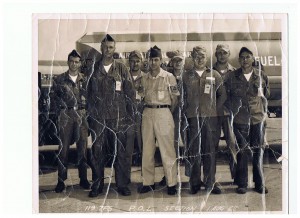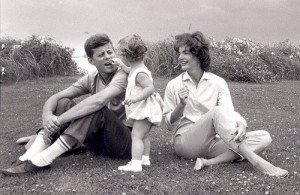By Christina Braxton
Black men, like Dennis Braxton, the subject of my interview, served their country during the Vietnam War only to return home to be treated like second-class citizens. This was the recurring theme throughout my interview. We also discussed the anti-war movement, the civil rights struggle and his involvement in the Black Panther Party.
Mr. Braxton, now 67 years old, decided to enlist in the Navy in 1967 and served until 1971. For three consecutive years, he spent about three months each year in Vietnam. By the time Braxton had enlisted, major Civil Rights legislation had already been passed. However, laws were one thing, implementation was another. When telling the story of how he ended up in Vietnam, Braxton explains:
“I went into aircrew training and anti-submarine warfare and I did real good in my training. I went into the West Coat anti-submarine squadron again because since Viet Cong didn’t need any submarines, I didn’t think I’d be in an area that was fighting a war anytime soon. I got assigned to my squadron of choice after finishing my training and I was flown into a duty station in the Philippines. It turns out that part of my squadron was rotating through Vietnam because they had changed the mission of the squadron to drop the submarine equipment into the jungle and check for Viet Cong. So I ended up in Vietnam anyway. [1]
Braxton also explained that discrimination in the navy was just as bad as discrimination outside of the navy. Before serving, Braxton was a student in Bluefield, Virginia, which was an extremely segregated part of the country. As an electronics technician, he was truly in the minority because most blacks served as cooks, mechanics, and deck workers. Blacks were constantly looked down on and were assumed to be “dumb, ignorant, and uneducated”. [2] Braxton goes on to explain that “There was a built in resentment from the white folks because they thought they were smarter, better, and more sophisticated and thought they were superior to black folks.” [3] When I asked Braxton what the hardest thing to deal with , he answered, “The hardest thing to deal with was the fact that people were giving me orders that were dumber than I was and they didn’t have the vision, common sense, or level of education that I did. They had the same fears and had the same limitations that I did but back then, no one looked into that in detail.” [4]
In 1964, the movement against the involvement of the United States in the Vietnam War began and many were peaceful protests on the campuses of universities across the United States but some became violent. This movement also incorporated civil rights, free speech, and the women’s rights. Anti war protests increased in frequency once Americans became aware of the violence that was happening overseas due to growing television coverage. As the death toll rose, many Americans began to question the country’s role in the war and in the draft, specifically. Many American’s saw the country’s involvement as immoral and unnecessary. In the book Chronicles of a Two-front War: Civil Rights and Vietnam in the African American Press, the author, Lawrence Allen Eldridge states, “the President was allowing his calendar to be monopolized by the Vietnam War, and the far-off war was pulling the attention of the American people away from the vivid stories of the civil rights struggle.” [5] H.W. Brands claims that many Americans “asked whether the status of a small country far away justified the expenditure of American blood and treasure.” [6] This made black participation in the war more difficult because blacks were not accepted as citizens in the United States and to make matters worse, they were participating in a war that was increasingly unpopular. Braxton remembers feeling conflicted:
“On one hand, I’m a representative of the United States of America. On the other hand, I’m not getting the full benefits of citizenship. And what made it even worse was that most citizens were against the Vietnam War. So for black men it was a little bit different. When we wore the uniform wanting to be respected as a black person, the country didn’t respect us as a people of color. And to make things worse, we were fighting in a war that people didn’t agree with in the first place. So it made it weird. [7]
Braxton returned to the United States in February of 1971 and was honorably discharged from the Navy on March 11, 1971. When he returned to California in 1971, he describes the area as “hippie-land.” [8] Peaceful protests were now extremely common but movements like the Black Panther Party also rose in popularity. One of the first things Braxton did when released from the Navy was to join the Black Panthers. They were not always a violent organization, but they would use violence as one of their tools. In American Dreams: The United States Since 1945 by H.W. Brands states that “ Even as King and other civil rights leaders were advocating nonviolence and urging blacks to work within the existing political system, Stokely Carmichael, H. Rap Brown, and a cadre of militants declared the system incurably corrupt and told African Americans to take their grievances to the streets.” [9] Braxton stated bluntly that, “they didn’t have any tolerance for peaceful protesting.” [10]
[1] Phone Interview with Dennis Braxton, Carlisle, PA, March 26, 2015
[2] Phone Interview with Dennis Braxton, Carlisle, PA, March 26, 2015
[3] Phone Interview with Dennis Braxton, Carlisle, PA, March 26, 2015
[4] Phone Interview with Dennis Braxton, Carlisle, PA, March 26, 2015
[5] Eldridge, Lawrence Allen. Chronicles of a Two-front War: Civil Rights and Vietnam in the African American Press. Columbia [Mo.]: University of Missouri, 2011. eBook Academic Collection (EBSCOhost), EBSCOhost (accessed April 26, 2015).
[6] H.W. Brands, American Dreams: The United States Since 1945 (New York: Penguin Books, 2010), 148-151.
[7] Phone Interview with Dennis Braxton, Carlisle, PA, March 26, 2015
[8] Phone Interview with Dennis Braxton, Carlisle, PA, March 26, 2015
[9] H.W. Brands, American Dreams: The United States Since 1945 (New York: Penguin Books, 2010), 148-151.
[10] Phone Interview with Dennis Braxton, Carlisle, PA, March 26, 2015
Audio snippet from Braxton interview:




